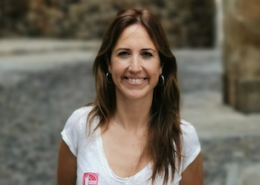Summary:
Conflict situations, their detection, prevention and approach, among others, are part of the professional characteristics of teachers, social educators and pedagogues. Therefore, given the need for today’s society to offer a response to conflict situations generated in different educational, work and social environments, specific training in positive conflict resolution is necessary and essential for the pedagogue, social educator and/or teacher to be prepared for the world of work in all aspects.
The aim of this research is to find out the training needs of professionals from the UB’s Faculty of Education related to conflict resolution in the world of work, in order to analyse the level of training provided in its courses and thus be able to readjust the academic offer to the needs of the workplace in order to train students competent in positive conflict management.
 https://www.ub.edu/gredi/wp-content/uploads/2020/09/Foto-Esther-Luna.-MISE.png
228
306
Albert
https://www.ub.edu/gredi/wp-content/uploads/2019/07/logo-gredi-300x95.png
Albert2019-05-02 00:00:392022-06-01 12:05:29Esther Luna González
https://www.ub.edu/gredi/wp-content/uploads/2020/09/Foto-Esther-Luna.-MISE.png
228
306
Albert
https://www.ub.edu/gredi/wp-content/uploads/2019/07/logo-gredi-300x95.png
Albert2019-05-02 00:00:392022-06-01 12:05:29Esther Luna González





